Photographs: Reuters/Kyodo
Japan's biggest new landmark, the Tokyo Skytree stands at 634 metres (2,080 feet) high. Tokyo Skytree is the world's tallest free-standing tower, and is a testament toJapan's recovery.
...
Tokyo Skytree: World's tallest free-standing tower
Image: Japanese Emperor Akihito (L) and Empress Michiko look out from the 450m (1,480 ft) high observatory at the Tokyo Sky TreePhotographs: Yoshikazu Tsuno/Reuters
It is double the height of the Eiffel Tower, but falls short of the 2,717 ft recorded by the world's tallest building, the Burj Khalifa in Dubai. But, that's in a different category because it's a skyscraper, not a tower.
...
Tokyo Skytree: World's tallest free-standing tower
Photographs: Reuters
Skytree is also recognised by Guinness World Records as the tallest tower, beating out the Canton Tower in China, which is 600 meters (1,968 1/2 feet).
...
Tokyo Skytree: World's tallest free-standing tower
Image: Reporters observe a panoramic view of the city of Tokyo from the first observatory deckPhotographs: Issei Kato/Reuters
The height of the Tokyo Skytree was originally specified at approximately 610m in the original project. However, it was planned from the beginning to be the world's tallest free-standing broadcasting tower.
...
Tokyo Skytree: World's tallest free-standing tower
Image: An eclipse is seen over Tokyo Sky TreePhotographs: Kim Kyung-Hoon/Reuters
The decision on the figure "634" for the height was based on the concept of choosing a figure that would be easy for everyone to remember with the world's tallest tower that has also become a symbol of the area.
The sound of the number "634" when read in old Japanese numbers is "mu-sa-shi", which reminds Japanese people of Musashi Province of the past, that used to cover a large area, including Tokyo, Saitama and part of Kanagawa Prefecture.
...
Tokyo Skytree: World's tallest free-standing tower
Image: Visitors form a line at the ticket counters of the Tokyo Sky TreePhotographs: Kim Kyung-Hoon/Reuters
Tokyo Skytree is designed in an original colour, "Skytree White", representing harmony with the surrounding scenery, its name and the design concept: "The creation of city scenery transcending time: A fusion of traditional Japanese beauty and neo-futuristic design".
...
Tokyo Skytree: World's tallest free-standing tower
Image: A man with a hairstyle featuring the Tokyo Sky TreePhotographs: Kim Kyung-Hoon/Reuters
The major role of Tokyo Skytree is transmission of digital terrestrial broadcasting. Digital terrestrial broadcasting has already been in use since December 2003 in the Kanto area, but due to the many tall buildings rising over 200m high in central Tokyo, it has become necessary to build a new tower higher than 600m for broadcasting transmission purposes.
...
Tokyo Skytree: World's tallest free-standing tower
Photographs: Kim Kyung-Hoon/Reuters
The new tower has two public observatories offering 360-degree views. The 2,00,000 visitors who turned up on the opening day testified to the fact that it has been taken to the nation's heart.
...
Tokyo Skytree: World's tallest free-standing tower
Image: Visitors try to take pictures of the Tokyo Sky TreePhotographs: Kim Kyung-Hoon/Reuters
The Skytree, which took three-and-a-half years to complete, is already popular and has its own brand of perfume.
...
Tokyo Skytree: World's tallest free-standing tower
Photographs: Kim Kyung-Hoon/Reuters
The first observation deck of the Skytree can accommodate up to 2,000 people and the second deck up to 900, according to media reports.
...
Tokyo Skytree: World's tallest free-standing tower
Image: Receptionists work behind their desk at Tokyo Sky TreePhotographs: Kim Kyung-Hoon/Reuters
The tower has seismic proofing, including a central shaft made of reinforced concrete. Its blueprint includes a central shaft made from reinforced concrete, and a regular series of 'dampers', which can absorb 50 per cent of the energy from an earthquake.
...
Tokyo Skytree: World's tallest free-standing tower
Photographs: Kim Kyung-Hoon/Reuters
The tower withstood damage from the devastating earthquake that hit Japan in March 2011 during its construction.
The disaster pushed back building efforts by two months.

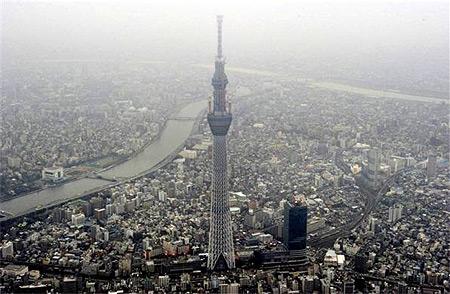
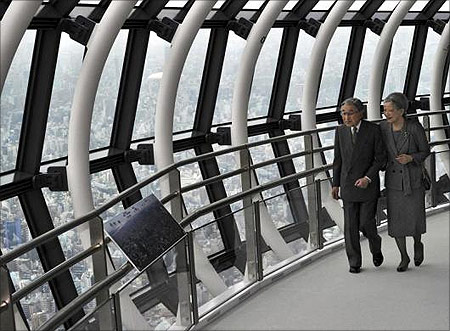
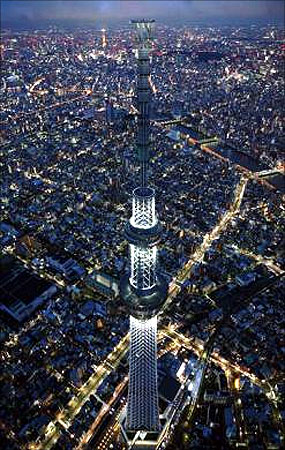
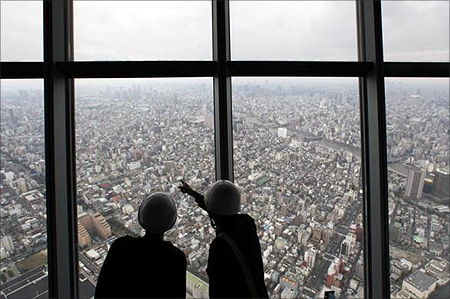
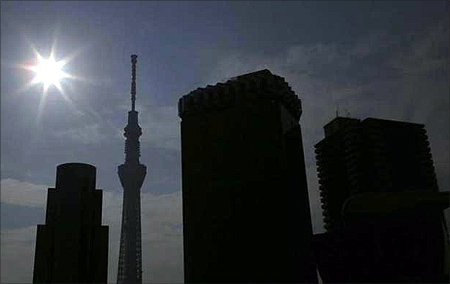
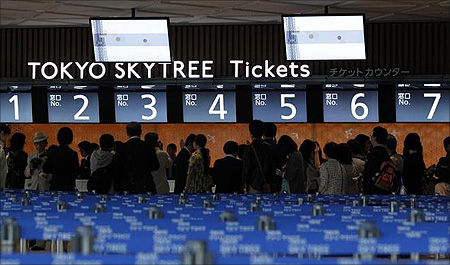
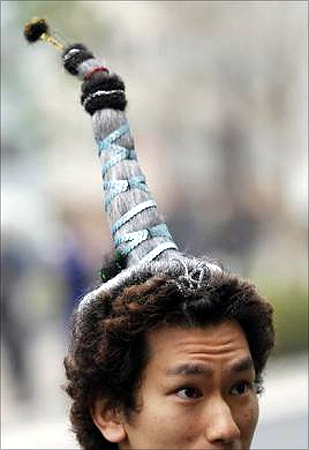
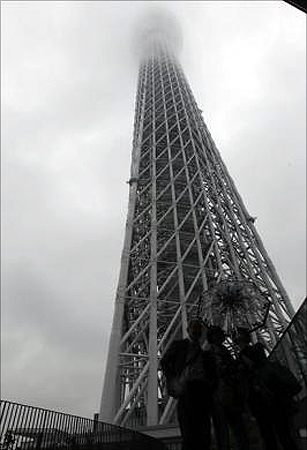
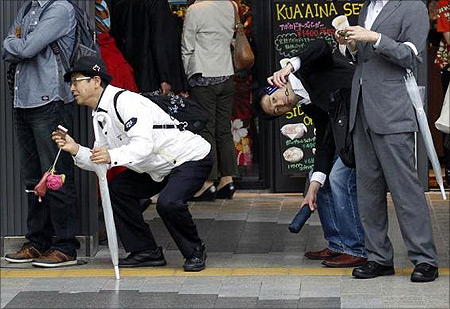
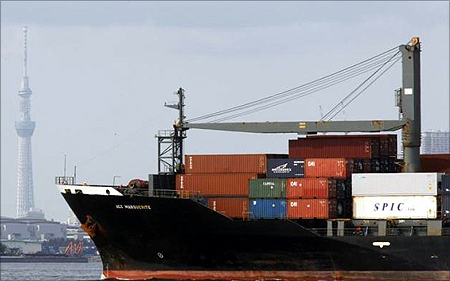
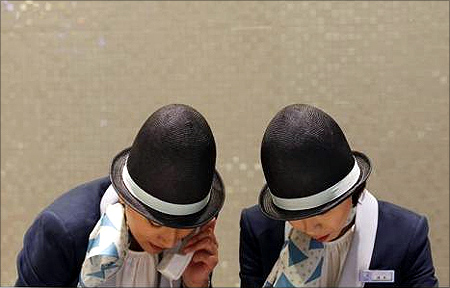
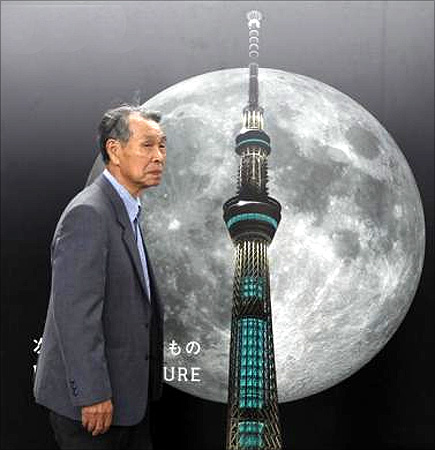
article